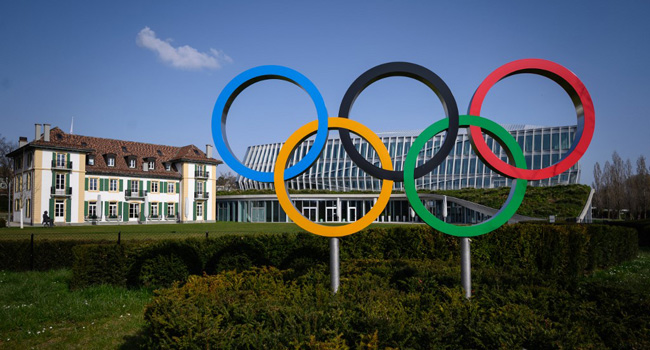Overseas Fans Banned From Tokyo Olympics

![]()
Overseas fans will be banned from this summer’s virus-delayed Tokyo Olympics, organisers said Saturday, calling the decision disappointing but “unavoidable” as they try to hold the Games safely during the pandemic.
The unprecedented ban will make the Tokyo Games the first ever without overseas spectators, with organisers scaling back their ambitions for the pandemic event.
Once billed as a party to celebrate “proof of humanity’s triumph over the virus”, the Games are instead shaping up to be a largely television event, with little of the international party atmosphere that usually characterises an Olympics.
In a statement issued after talks between local organisers, Japanese officials and Olympic and Paralympic chiefs, Games officials said the virus situation in Japan and abroad remained “very challenging”.
They said it was “highly unlikely” Japan could guarantee overseas visitors entry by the summer, and therefore the ban on spectators from abroad was necessary.
Tokyo 2020 chief Seiko Hashimoto admitted the decision had not been easy.
“I myself was an athlete. I had the pleasure of participating in the Olympics a number of times. So the fact that spectators are not able to attend the Games from abroad is very disappointing,” she said.
But, she added: “We have to ensure a safe and secure environment for all the participants. It was an unavoidable decision.”
In a statement, the International Olympic Committee (IOC) and International Paralympic Committee voiced their disappointment at the ban, but said they “fully respected and accepted” the decision.
They stressed that all tickets to the Games already purchased by overseas residents would be refunded.
The US Olympic team called the decision “news we hoped would never come”, adding in a statement that it would “continue to advocate for opportunities for American fans to experience the Games in person”.
‘Difficult decisions’
Organisers had planned to sell 630,000 tickets for the Olympics and Paralympics to overseas fans, but that has looked increasingly unrealistic in recent weeks.
Leaks ahead of the talks made clear organisers were leaning against allowing fans from abroad, and IOC chief Thomas Bach set the stage earlier Saturday, warning “difficult decisions” would be necessary to ensure safety.
The IOC has reportedly sought limited exemptions for some overseas guests, but the rules are likely to be strict.
Tokyo 2020 chief Seiko Hashimoto admitted last week it will be “difficult” for even the families of foreign athletes to attend.
Just how many domestic spectators will be in venues this summer has yet to be decided.
Organisers originally suggested they would rule on that by April, but Bach has said the decision could be pushed closer to the July 23 opening ceremony.
Whatever they decide, there’s no doubt that barring overseas fans will help make the Games a very different event from years past.
“It has never happened that foreign spectators were banned from entering the host country at the time of the Games, even during the Spanish flu at the time of the Antwerp 1920 Olympic Games,” said Jean-Loup Chappelet, a Lausanne-based professor who specialises in the Olympics.
“Even for Athens 1896, the Cook agency organised ‘packages’ for those who wanted to attend the first modern Games.”
When the Games were postponed last year, organisers and Japanese officials had hoped that the pandemic would be receding by spring 2021.
They proclaimed the event would mark the light at the end of the pandemic tunnel, and a celebration of the end of a global crisis.
But even with vaccines rolling out in much of the world, the virus continues to cause havoc, and the narrative from Olympic officials looks to be changing.
‘Completely different’
The torch relay kicks off next week, with spectators barred from the launch ceremony and those lining the route asked to avoid cheering.
In an interview last week, Tokyo 2020 CEO Toshiro Muto acknowledged that the virus situation in the Japanese capital remained “extremely serious” and said the Games offered “solidarity” during a difficult time.
Japan’s public remains sceptical about the safety of the event, with a majority opposed to holding it this year and favouring either cancellation or further postponement.
But organisers and Olympic officials have said neither of those are options, and they have put together virus rulebooks they say will ensure the Games are safe regardless of the pandemic.
Hashimoto said the Games would still have much to offer.
“The Tokyo 2020 Games will be completely different from the past, but the essence remains the same, athletes will put everything on the line, and inspire people with their outstanding performances,” she said.
The year-long delay and virus safety countermeasures have helped balloon Tokyo 2020’s already mammoth budget to an eyewatering 1.64 trillion yen ($15 billion), making the Games potentially the most expensive summer Olympics in history.
And Muto said it was “very clear” that barring overseas fans would affect organisers’ bottom line, though the final impact won’t be clear until limits on domestic spectators are decided.
AFP


